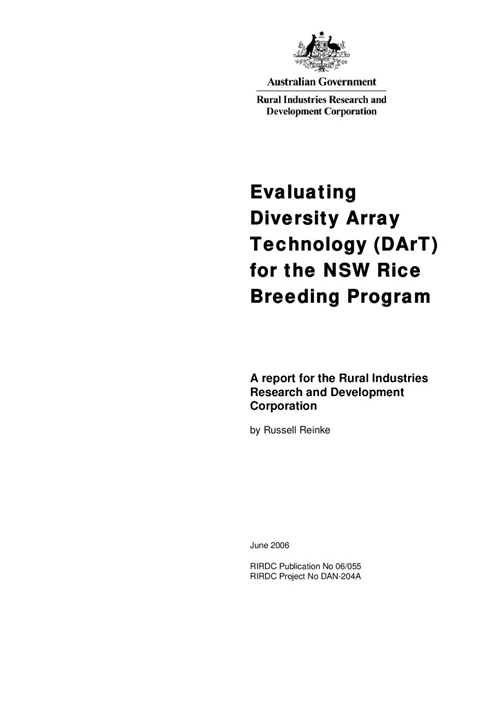Rice Extension Annual Summary CY25
This report acts as a detailed snapshot of the season, guidebook for rice growers, a reference guide for researchers and an educational resource for other...
 RICE
RICE 
57 pages
Published: 16 Jun 2006
Author(s): Reinke, Russell
Download report PDF
DownloadPurchase a hard copy - AUD $45.00
The project has highlighted the capability of DArT to provide detailed genetic fingerprints of varieties, to distinguish closely related lines, and to establish relationships between lines providing useful information for choosing parental combinations for breeding. Each DArT analysis can provide up to 600 markers widely distributed across the genome and thus in diverse crosses enables selection of lines with small DNA segments of the diverse parent inserted into a locally-adapted line. Future association studies relating agronomic and grain quality data will determine if DArT markers can replace existing molecular marker tests such as for fragrance. DArT analysis will play an increasing role in the rice breeding program because the cost per marker is low, its highly automated system has high throughput capacity, and the data generated will have increasing value with continuing advances in bioinformatics.